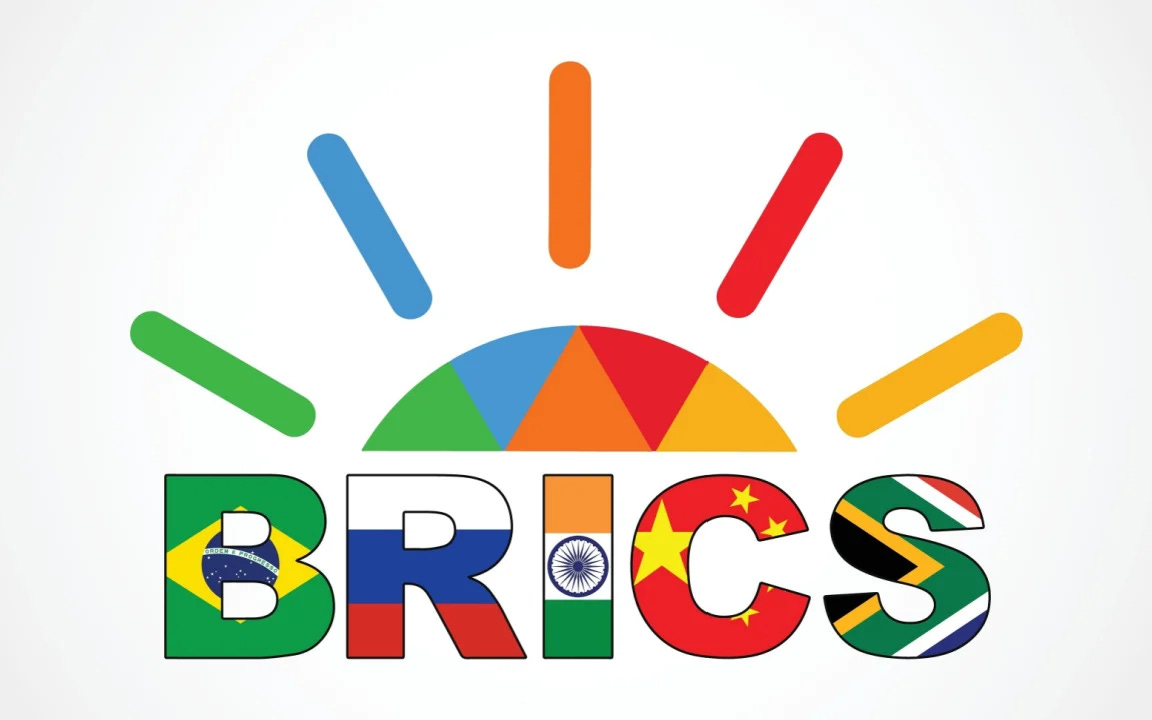As expected, western media in its sketchy coverage of the recent BRICS summit in Kazan has continued its long held partisan analysis. This time the spin was directed at Russia and President Vladimir Putin - for now the West’s public enemy number one.
“Putin presents himself as champion of the developing world”; “Putin ends BRICS summit that sought to expand Russia's global clout but was shadowed by Ukraine”; “Inside Putin’s Alternate Reality: Warm Embraces and a Veneer of Normalcy” were among the headline columns posted in American media in their campaign to further demonise Putin and to influence readers to viewing BRICS as an inconsequential geo political grouping.
American media's barely concealed hostility to the Kazan summit which brought together leaders from 36 countries appears to have played second fiddle on this occasion to what has been posted in Japanese media which has emerged as an anti-BRICS echo chamber of the west. This positioning is surprising since BRICS members are among Japan’s biggest trading partners and export markets, and have played a key role in the rise and development of Japan.
According to Japan Times, “BRICS once again meet to complain and vent frustrations”. Nikkei Asia, the conservative pro American Japanese business media organisation, had more neutral but still clearly negative headlines: “As BRICS expands, its recruits chase disparate goals” and “Russia wants BRICS to become OPEC for wheat. Will members buy it?”.
Summit Highlights For ASEAN and Asia
What BRICS achieved in Kazan can be seen in different ways from what has appeared in western and Japanese media and replicated by English language media in the Asian region.
Firstly, it has grown from the original 5 countries (Brazil, Russia, India, China and South Africa). 4 were added in January 2024 (Egypt, Ethiopia, Iran and United Arab Emirates) and it now has another potentially 13 new members. Countries that have become "partner states" as a prelude to full membership are: Turkey, Indonesia, Algeria, Belarus, Cuba, Bolivia, Malaysia, Uzbekistan, Kazakhstan, Thailand, Vietnam, Nigeria, and Uganda.
This expansion of BRICS has made the BRICS+ group an even more formidable geo-political and economic powerhouse. Before the Kazan summit, the nine BRICS members were estimated to comprise 40% of the world’s population and to account for more than one-third of world GDP (measured at purchasing power parity). By contrast, the G7 nations have less than 10% of the world’s population and under 30% of GDP (PPP).
With the additional 13 new members and a combined economy estimated at US$30 trillion, the clout of the BRICS+ grouping of 3.5 billion people has the potential to succeed where efforts at unifying and enhancing the progress of the less developed nations through the Non Aligned Movement (NAM) and group of 77 (G77) in the United Nations (UN) had earlier failed.
According to a report from the Carnegie Endowment for International Peace:
The coalition [BRICS] can use this leverage not only to demand a more equitable international order but also to act on those ambitions, for instance by establishing a parallel energy trading system, deepening commercial links among members, creating an alternative system of development finance, reducing dollar dependence in foreign exchange transactions, and deepening technology cooperation in fields from AI to outer space.
See https://carnegieendowment.org/research/2024/10/brics-summit-emerging-middle-powers-g7-g20?lang=en
Secondly, four member countries of ASEAN are now partner states and are likely to be full members in the next summit. According to Piti Srirangam, executive director of the ASEAN Foundation, “Being a member of BRICS would open up trade and investment opportunities, so the question is 'why not? The bloc has members from all over the world, but none from Southeast Asia yet".
It is not just trade and investment benefits the ASEAN countries and other aspiring members are looking out for. They, together with other participating countries, endorsed the Kazan Declaration issued on 23 October. Titled Strengthening Multilateralism for Just Global Development and Security, the 43 page, 134 point document calls for a “more representative, fairer international order, a reinvigorated and reformed multilateral system, sustainable development and inclusive growth”.
See http://static.kremlin.ru/media/events/files/en/RosOySvLzGaJtmx2wYFv0lN4NSPZploG.pdf
A third highlight was the announcement at the summit of the agreement by its two founding members, India and China, to resolve their border and other disputes, stabilise relations and move to a new era of peace, security and cooperation. The timing of this momentous announcement is especially significant for BRICS+ development.
While not a direct issue of the summit itself, the agreement will have ripple effects across a wide range of global and regional areas of contestation and concern - military, political and economic.
If the two countries can reset their relationship according to what Indian Prime Minister Narendra Modi has described as “mutual trust, mutual respect and mutual sensitivity”, they will provide a model of conflict resolution and peaceful coexistence for members of BRICS derided by western media as an organisation doomed to failure as a result of internal disputes and rivalries.
They will also provide for the rest of the world an example of how to contest the current rules based order crafted by the US and western allies to entrench western hegemony and dominance through manipulation of the dissension and divisions of nations not aligned with or supportive of the west.
Lim Teck Ghee
Lim Teck Ghee, ANU PhD graduate, is a Malaysian economic historian and policy analyst. He has a regular column, Another Take, in The Sun, a Malaysian daily and Oriental Daily; and is the author of Challenging the Status Quo in Malaysia, and Dark Forces Changing Malaysia (with Murray Hunter).
Subscribe Below:





Nations arise and fall, civilizations ascend and decline, individuals outshine others and degenerate into obscurity and shame have all three common causes of sowing the seed of destruction or deficiency in decision making.
Three quotations fundamentally summarize the down fall of society both individually and together as a organization.
1 “The illiterate of the 21st century will not be those who cannot read and write, but those who cannot learn, unlearn, and relearn. ”
― Alvin Toffler (4 Oct 1928- 27 June 2016)
2.He who will not reason, is a bigot; he who cannot is a fool; and he who dares not is a slave.
Sir William Drummond (26 Sept 1769-29 March 1828)
3. Attachment is the great fabricator of illusions; reality can be attained only by someone who is detached.
Simone Weil (3 February 1909 - 24 August 1943)
Ask ourselves whether it is Hezbollah or hamas or USA as a nation committed any of the above blunder?
Well elucidated Mr Lim.
BRICS Plus is here to stay, grow and expand for a better and bigger new world order.